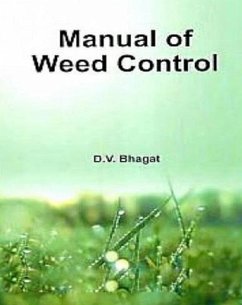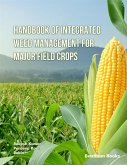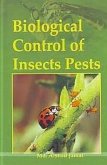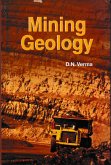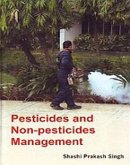Weed control is the botanical component of pest control, using physical and chemical methods to stop weeds from reaching a mature stage of growth when they could be harmful to domesticated plants and livestock. In order to reduce weed growth, many "weed control" strategies have been developed in order to contain the growth and spread of weeds. The most basic is ploughing which cuts the roots of annual weeds. Today, chemical weed killers known as herbicides are widely used. Weeds can compete with productive crops or pasture, or convert productive land into unusable scrub. Weeds are also often poisonous, distasteful, produce burrs, thorns or other damaging body parts or otherwise interfere with the use and management of desirable plants by contaminating harvests or excluding livestock. Weeds tend to thrive at the expense of the more refined edible or ornamental crops. They provide competition for space, nutrients, water and light, although how seriously they will affect a crop depends on a number of factors. Some crops have greater resistance than others- smaller, slower growing seedlings are more likely to be overwhelmed than those that are larger and more vigorous. The manual will definitely serve as a guide to the field/extension/students and research workers who are involved in weed control work.
Dieser Download kann aus rechtlichen Gründen nur mit Rechnungsadresse in A, B, BG, CY, CZ, D, DK, EW, E, FIN, F, GR, HR, H, IRL, I, LT, L, LR, M, NL, PL, P, R, S, SLO, SK ausgeliefert werden.

